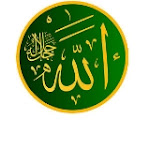The Phenomenon of Islam: Emergence and Rapid Expansion
The emergence and rapid spread of Islam have played a crucial role in shaping the history of the world. From its humble beginnings in 7th century Arabia, Islam grew into a powerful and influential religion that spans across continents. This article delves into the origins of Islam, the factors that contributed to its strong presence, and the mechanisms through which it spread widely.
1. The Birth of Islam
Islam was founded by Prophet Muhammad in the early 7th century CE in the Arabian city of Mecca. Muhammad, considered the last prophet by Muslims, received revelations from God, which were later compiled into the holy book of Islam, the Quran. Muhammad's teachings emphasized monotheism, social justice, and moral conduct, resonating with many people in the region.
2. Factors Contributing to the Strength of Islam
2.1. Unity and Clarity of Message
One key factor that contributed to the strong emergence of Islam was the unity and clarity of its message. The Quran provided a comprehensive guide to life, covering spiritual, social, and legal aspects. Its straightforward and accessible language allowed people from different backgrounds to understand and adopt its teachings, leading to a sense of unity and purpose among early Muslims.
2.2. Social Reforms and Equality
Islam introduced several social reforms that appealed to people in a society plagued by tribal conflicts and social injustices. Islam emphasized the equal worth of all individuals regardless of their background, promoting principles of social justice, charity, and compassion. This message of equality resonated with many people who sought a fairer and more just society.
2.3. Military Successes and Political Stability
The early Islamic community faced significant challenges, including persecution and opposition from various quarters. However, through a combination of defensive and offensive military campaigns, the early Muslims were able to establish their presence and achieve political stability. The success of early Muslim armies, coupled with the fair treatment and protection of conquered populations, often led to voluntary conversions and the spread of Islam in new regions.
3. The Spread of Islam
3.1. Trade and Commercial Routes
Trade played a pivotal role in the spread of Islam. Muslim merchants, known as traders of the faith, traveled extensively across diverse regions, establishing economic networks and cultural ties. Through their interactions with people from different backgrounds, these traders introduced Islam and its teachings, which gradually gained acceptance among communities along the trade routes.
3.2. Tolerance and Coexistence
Islam's expansion was also facilitated by its policy of religious tolerance and coexistence. Conquered populations were allowed to practice their own religions and were not coerced into conversion. This policy of religious freedom fostered a sense of security and stability, encouraging peaceful coexistence between Muslim and non-Muslim communities.
3.3. Appeal of Islamic Teachings
The appeal of Islamic teachings, including its moral values, ethical principles, and emphasis on the unity of God, attracted individuals from different walks of life. Islam provided a comprehensive framework for life, addressing spiritual, social, and personal aspects. Its teachings resonated with many who sought meaning, guidance, and a sense of belonging.
The emergence and strong spread of Islam can be attributed to various factors, including the clarity and unity of its message, the social reforms and equality it introduced, military successes and political stability, trade networks, religious tolerance, and the appeal of its teachings. Over the centuries, Islam has continued to thrive, adapting to diverse cultures and regions while retaining its core principles. Understanding the historical context and mechanisms through which Islam emerged and spread provides valuable insights into the complex and multifaceted nature of this global religion.






0 $type={blogger}:
Post a Comment
Dear Friend,
I hope this message finds you well. I just wanted to take a moment to thank you for your recent comment on our [blog/article/post]. Your feedback is greatly appreciated and helps us to continue improving our content for our readers.
If you have any further questions or comments, please don't hesitate to reach out. We value your input and look forward to hearing from you again soon.
Best regards,
[Hicham NOUR EL YAKINE]